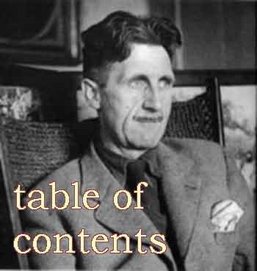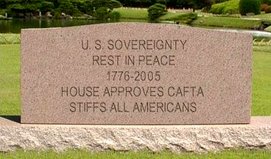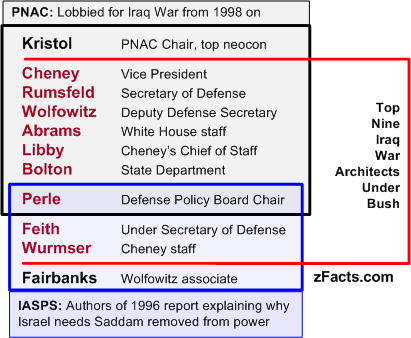What Jewish Identity Means to College Graduates in the 21st Century
Michael Gerson
Presentation for College Homecoming Sabbath, January 3, 2003
Just four years ago, almost to the day, I sat in our Temple as my sister, Jennifer, spoke to this congregation. In front of many of these same faces, Jennifer presented her views on being a Jewish student at the University of Texas. With tears in her eyes, my sister remarked that the next time she would be on the bema was under the Chupa—in her wedding to Mark Eichelbaum that May.
Indeed, May 1999 was a busy month for the Gerson family. During the last week in May, Jennifer graduated from UT, I graduated from Clark High School, and Jennifer Gerson became Jennifer Gerson Eichelbaum. Despite an incredibly busy week, it was filled with joy. I was happy to be gaining Mark as my brother-in-law. As I said then, Mark was the brother I never had, and Jennifer was the sister I never wanted.
As I sat at Shabbat service listening to my sister's account of Jewish life at UT, I remember wondering how my UT experiences would be. Four years later, here I am—a second-semester senior graduating this May, now standing before this congregation, composed of my family and friends, recalling my life as a Jewish college student.
Upon reflection of my life at UT, there are two occasions that stand out as defining what it means to be a Jewish college student—one a social experience, the other academic.
Upon my acceptance to the University of Texas, I had many things to consider about this new phase in my life. In high school, I was fortunate to have a close group of Jewish friends, whom I made from active involvement in the B'nai Brith Youth Organization, and a close group of non-Jewish friends from high school. However, by my senior year in high school, my Jewish identity became a big part of my thinking when I considered freshman housing and social organizations.
As I contemplated where to live and which fraternities I was interested in, the opportunity to meet Jewish students in college became a very important factor in my deliberations. I realized that, at a University as large at UT, it would be to my advantage to live in a dorm that traditionally housed Jewish students and to join a predominantly Jewish fraternity. Consequently, I choose to live in University Towers—an off-campus dorm known for having a large Jewish population. In addition, I joined Pi Lambda Phi, a predominantly Jewish fraternity. These two early decisions would become some of the most important choices I would make. Within the first two weeks of school, I had met many Jewish friends, many of whom became my pledge brothers in the fraternity and sisters in the Jewish sororities.
My first truly moving experience as a Jewish student at UT came at the first night of Hanukkah my freshman year. That semester, Hanukkah began before our Winter Break, so we were still in Austin, preparing for finals, on the first night of Hanukkah. That night, about twenty girls and guys gathered in a friend's dorm room at Towers to light the menorah. I distinctly remember looking around the room and thinking, “look at this—an entire room full of Jewish kids my age celebrating Hanukkah!” I remember feeling a sense of belonging….of community….of comfort, a feeling that, as I think every Jew knows, only comes when around other Jews.
It was at that moment that I realized how important Judaism is in my life. That Hanukkah was the first time in 18 years that I had celebrated the first night away from my family. Yet, I did not feel alone. I was surrounded by a group of Jewish friends who, like me, were celebrating the holiday away from their families. That night, I understood that Judaism was not just about the practice of our sacred religion, but also about community and family. I believe there is a common bond that links all Jews together—that night was a perfect example.
This was not the only Jewish familial experience my freshman year. In fact, there were many others. Many of us went to dinner at Old San Francisco Steakhouse on Yom Kippur Eve and then to services that night and the following morning at Hillel, and during Passover the fraternity house served traditional Passover meals. Throughout the four years I have spent as a student at UT, my close group of Jewish friends celebrated holidays together when we could not be with our families.
As I reflect on my academic experiences at UT, I consider my sophomore year, especially the Spring semester, as most influential in cultivating my academic interests, career aspirations, and my understanding of Jewish life. In Spring 2001, I was one of twenty students admitted to the Normandy Scholars Program, an intense, semester-long study of the Second World War concluding with an excursion to Normandy, France with our professors that May.
As a history major, I had always had an interest in World War II. I had realized, however, that my understanding of the Second World War was inextricably linked to my grandparent's tribulations as prisoners in the Nazi concentrations camps. Although I believe that my emotional ties to the war are necessary as a young Jew with grandparents who are Holocaust survivors, I hoped to gain an academic understanding of the war as a student in the Normandy Scholars Program. Surprisingly, I was only one of two Jewish students in the program. On the other hand, 2 of the 5 professors were Jewish.
In the program, we took a class called, “Hitler, Nazism, and WWII.” As the title suggests, this class centered on the Nazi seizure of power in 1933, the direction of the German war effort, and, of course, the concentration camps.
I quickly realized it was very difficult, if not impossible, to study Nazism without an emotional bias. Throughout the class, we read first-hand accounts from German citizens, SS and Gestapo soldiers, and Jews imprisoned in the camps about their experiences in the war. These detailed, and often graphic stories affected everyone in the class—yet I noticed that Brooke, the other Jewish student in the class, and I, were especially moved. I remember thinking that the stories we read and the movies we watched that contained rare footage of the camps were about my people…my family. When we traveled to Normandy, we spent several hours on the landing beaches where, on June 6, 1944, Allied soldiers stormed the coast of France on D-Day. On the hills overlooking the beaches, many of the concrete bunkers the Nazis built to thwart an Allied invasion remained intact—some still had the guns used to fire on the landing crafts in them. What an eerie feeling to walk inside the bunkers once occupied by Nazi soldiers.
In addition to visiting the landing beaches, we traveled to many other WWII museums, Allied cemeteries, and several Holocaust memorials. At several of the cemeteries we visited, I noticed that among the thousands of crosses that marked the graves of fallen soldiers, there were Stars of David interspersed within the sea of crosses. As I stood before the graves of many American Jews who fought to free their European families, I covered my head and recited the Shema and Mourner's Kaddish.
I had a similar response when we encountered Holocaust memorials. When I saw the horrific pictures of men and women imprisoned in the camps, I thought of my grandparents, Abe and Miriam Gerson. As a symbol of my pride in Judaism, I recited the Shema and Mourner's Kaddish.
My participation in the Normandy Scholars Program transformed my understanding of what it means to be Jewish. I now understand, in greater detail, how our ancestors struggled to maintain their Jewish identities. Since then, it has become even more important for me to remain active in our Temple, cultivate Jewish friendships, and raise a Jewish family.
Although these two experiences stand out as defining what it means for me to be a Jewish college student, they are certainly not my only memories. My degree plan in the Liberal Arts Honors Program required that I take foreign language training. Many of you might be surprised to learn the Yiddish is formally offered at UT.
Instead of Spanish, French, Italian, or any other modern language often studied by undergraduates, I took Yiddish. I decided to learn Yiddish because I believe it is a dying language since it is only used today by the older generation. In fact, my grandparents speak Yiddish in the home everyday. I felt it was important to keep the language alive. Despite the fact that fluency in Yiddish will most likely not benefit my career aspirations, unless, of course, I take a job in a deli in New York City, I will be able to teach my children a language that was fundamental to communication for our European ancestors.
As I stand before this congregation today, I am inclined to wonder where I will be in the next four years. At present, I am applying to both law schools and graduate schools with a hope of pursuing a law degree and a PhD in History for a career in academia.
Wherever my career aspirations take me, the Jewish identity I nurtured at UT and here at Temple Beth-El will continue to guide me life.
FOLLOWUP BY BEEBEE: You will not see one thing in this self-centered writing that talks about Gerson being a patriot that would give his life for the United States like my son was willing to do. But, once again, Christians should send their children to die for the Israel that Gerson loves and cherishes. What is with people like Erick that cannot see through this? Oh I understand because lawyers only take two history classes in college as a rule, and they do not take the time to see where the Republican talking points are coming from. Come on Erick, I thought you were smart!
Subscribe to:
Post Comments (Atom)







No comments:
Post a Comment